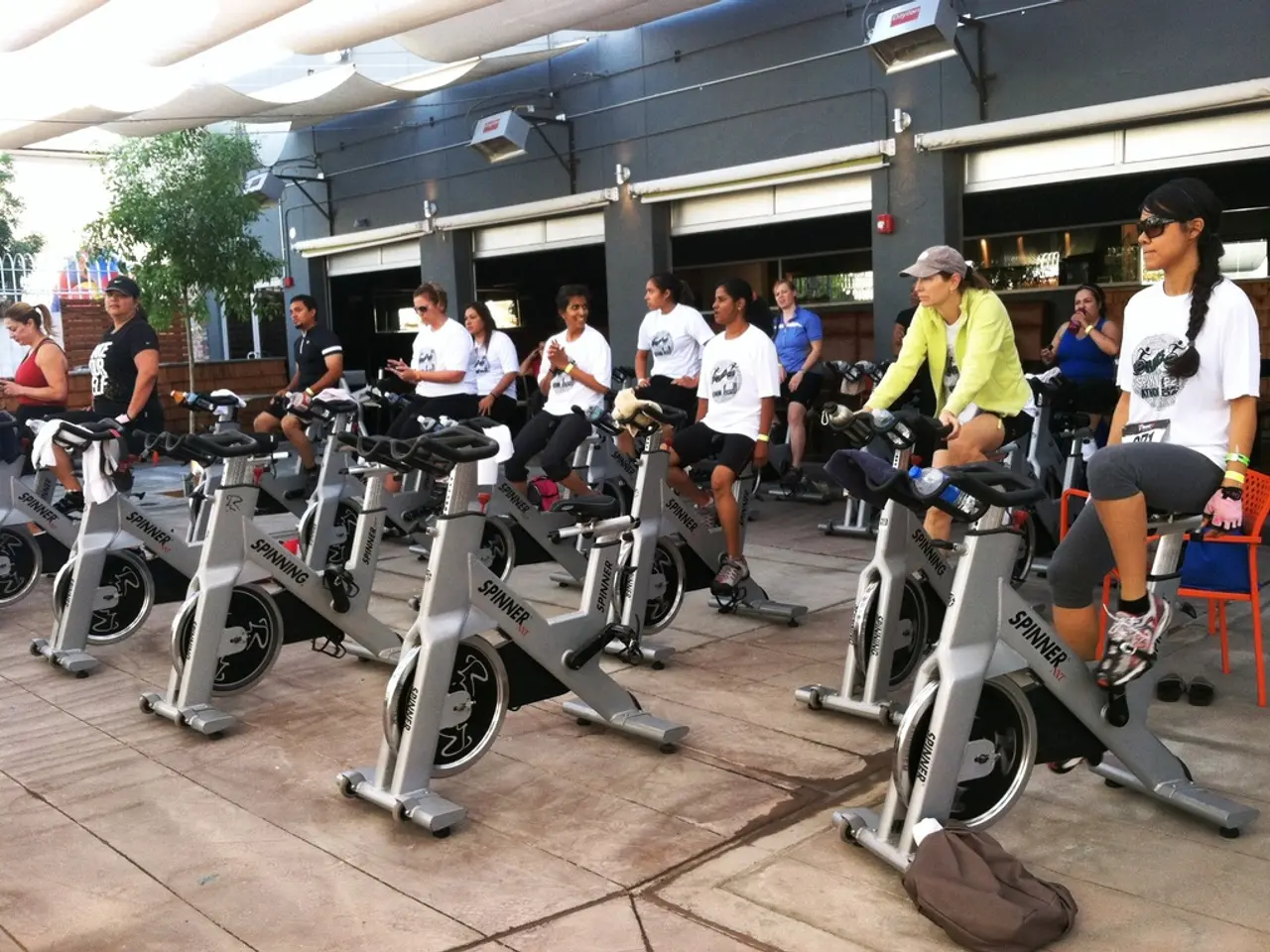Weight Loss: Prioritizing Nutrition over Physical Activity: Which Matters Most?
Switching up the traditional weight loss approach? Diet might be the answer. While exercise is vital for overall health, it's not the primary driver of weight loss. Here's why:
When it comes to shedding pounds, your diet takes the lead. To illustrate, consider a 500-calorie slice of cake. It takes mere moments to decide against that treat, but burning off those same 500 calories through exercise could take up to 45 minutes! In simpler terms, it's far easier to avoid the cake rather than sweating it out on a treadmill.
So, why focus on an unhealthy diet and struggle with exercise when you can sail through weight loss with healthy eating? That's right - a balanced, nutritious diet will serve you better and faster than a strenuous workout routine.
But wait - what's the best way to go about cutting calories for weight loss without turning into a ravenous beast? Fret not, as we've got some handy tips to keep hunger at bay while making progress towards your goals.
Vanessa Imus, a registered dietitian at the Center for Weight Loss and Metabolic Surgery at UW Medical Center - Roosevelt, reveals how to get started on the right path:
Calculating Calorie Needs for Sustainable Weight Loss
To find the perfect calorie goal, experts use the Mifflin-St Jeor equation - a foolproof formula to figure out your calorie needs. According to Imus, this equation works for 80% of the population.
Once you've determined your calorie needs using this formula, aim to lose weight by cutting around 500-750 calories per day. This equates to a healthy and sustainable weekly weight loss of 0.5 to 1 kg (1 to 2 pounds).
But remember, no formula is perfect. If the results seem off, your metabolism might be running faster or slower than predicted. In such cases, adjust your calorie goal based on your average daily calorie intake, subtracting 500 calories from it to arrive at your daily calorie goal.
Making Healthy Choices, Not Sacrifices
When starting any weight loss plan, it's natural to be eager for quick results. However, rapid weight loss can lead to poor choices and undermine your long-term weight management.
Imus advises against over-restricting calories or following extremely low-calorie diets. Not only do such diets make you feel constantly hungry, but they can also lead to a weight loss plateau as your metabolism slows down.
Opt instead for healthy meals that provide a balance of lean proteins, vegetables, and whole grains. Remember, a calorie deficit of 500 calories from cake isn't the same as a calorie deficit of 500 calories from a nutritious meal.
The Role of Exercise in Sustainable Weight Loss
Even though diet reigns supreme in weight loss, exercising has its own unique benefits beyond burning calories. As Imus explains, regular exercise helps maintain a healthy diet by curbing stress-eating tendencies and providing a healthy outlet for stress relief. Additionally, replacing boredom with exercise can keep you from giving in to cravings.
To reap the rewards of exercise, don't forget to make it fun. Swap that bag of chips for a pair of running shoes and go for a walk, and you'll find that exercise not only aids weight loss but also improves your overall well-being.
- Vanessa Imus, a registered dietitian at the Center for Weight Loss and Metabolic Surgery at UW Medical Center - Roosevelt, advocates using the Mifflin-St Jeor equation to calculate calorie needs for sustainable weight loss.
- To find the perfect calorie goal, experts suggest cutting around 500-750 calories per day, aiming for a healthy and sustainable weekly weight loss of 0.5 to 1 kg (1 to 2 pounds).
- When starting a weight loss plan, Imus recommends making healthy choices instead of making drastic sacrifices, as over-restricting calories can lead to feelings of constant hunger and a weight loss plateau.
- Exercise plays a crucial role in maintaining a healthy diet by curbing stress-eating tendencies and providing a healthy outlet for stress relief, making it an essential aspect of a well-rounded health-and-wellness routine, particularly in the context of fitness-and-exercise and aging.







